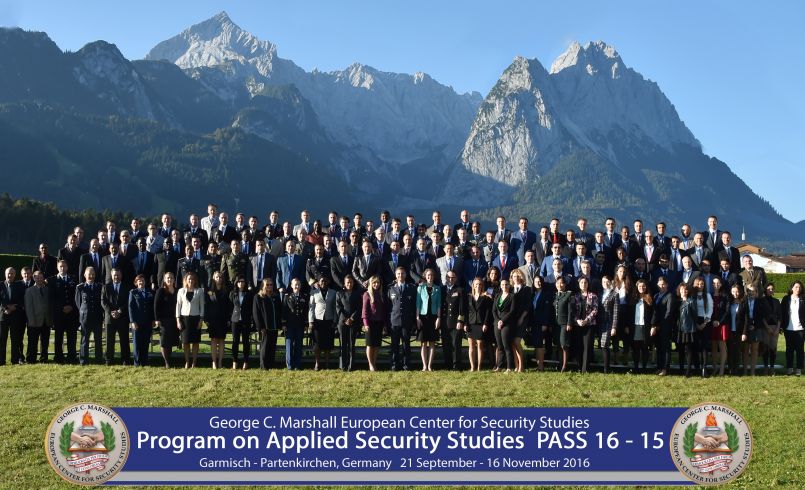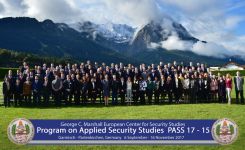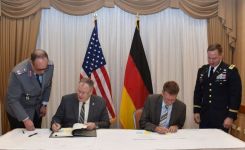- George C. Marshall European Center for Security...
- GCMC Alumni Group
- PASS 16-15 Graduates
PASS 16-15 Graduates
By Christine June
GCMC Public Affairs
GARMISCH-PARTENKIRCHEN, Germany (Nov. 17, 2016) – Armed with the knowledge of the “big picture” of the world’s security challenges and whole-of-government approaches, 106 security professionals from 51 countries graduated from the George C. Marshall European Center for Security Studies’ Program on Applied Security Studies Nov. 16.
“Be an agent of change,” said U.S. Army (Ret.) Lt. Gen. Keith W. Dayton, the Marshall Center director, during his remarks at the graduation ceremony. “Take what you have learned here and see how it can be applied to your countries,”
For the past eight weeks, these participants experienced more than 200 hours of academic engagement. They studied 33 security topics from security experts in interactive lectures starting with security challenges and ending with strategies and approaches. They also investigated security topics such as contemporary war and diplomacy, choosing three from 25 topics. “The world has changed while you were here.” Dayton listed these changes: “Syria is worse. The situation in Kashmir has deteriorated. Iraqi forces are fighting in Mosul. A peace agreement was reached between the FARC (Revolutionary Armed Forces of Colombia) and Colombian government, only to be rejected in referendum. Russia continues to interfere in Ukraine and has reinforced Kaliningrad with new missiles. Migrants continue to flow. And, the U.S. elected a new president.”
Included in these 200 hours of academics, participants discussed with faculty, subject matter experts and each other about the world’s most challenging contemporary issues: terrorism; cyber security; migration; gender mainstreaming; and, transnational organized crime.
“There are representatives from more than 50 countries in this graduating class,” said Ambassador Julieta Valls Noyes, the U.S. ambassador to Croatia. “Living and studying together must have been a crash course in listening to different points of view, challenging your own assumptions and engaging in international problem solving.”
Throughout her speech, she talked about the importance of listening to each other and finding common ground based on shared priorities.
This course aims to develop junior and middle-level civilian government officials, military and security force serve members and government academics, who aspire to higher leadership positions. It also encourages them to build a network of trustworthy international partnerships.



